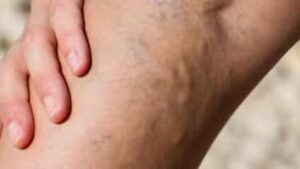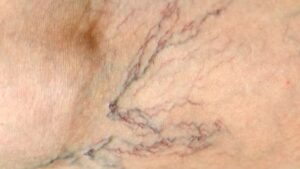If you are experiencing persistent leg swelling, lymphedema could be the cause. Dr. Thomas Cunningham specializes in diagnosing and treating lymphedema at Trident Vein Center in Spring Hill and Brentwood, Tennessee. As a vascular interventional radiologist with years of experience performing minimally invasive procedures, Dr. Cunningham helps patients live their lives more comfortably.
What Is Lymphedema?
Your lymphatic system is a crucial part of your immune system that helps remove waste and maintain fluid balance in your body. When lymph nodes are damaged, removed, or blocked, this system becomes disrupted, causing fluid to accumulate. The build-up of lymph fluid leads to swelling and becomes the chronic condition known as lymphedema.
This swelling most commonly affects the legs but can also occur in other parts of the body. Lymphedema may develop after surgery or radiation therapy, especially for cancer treatment, or as a result of infections, trauma, or underlying venous issues like chronic venous insufficiency.
Early Signs and Symptoms of Lymphedema
Recognizing the early signs of lymphedema is essential for getting the care you need. Some common symptoms include:
- Swelling: Persistent or recurrent swelling, particularly in the legs, is often the first noticeable symptom.
- Tightness or Heaviness: You may feel a tight or heavy sensation in the affected area, even without visible swelling.
- Skin Changes: The skin might appear thicker, redder, or more prone to irritation.
- Discomfort: Some people report tingling, aching, or general discomfort in the swollen area.
While it may start with mild symptoms, lymphedema can get worse over time. If left untreated, the chronic inflammation from fluid buildup may cause your skin to harden and thicken (a condition called fibrosis). In severe cases, patients may develop wounds or sores that heal slowly or not at all, increasing the risk of chronic infections such as cellulitis or lymphangitis.
Additionally, untreated lymphedema can lead to lymphangiosarcoma, a rare but aggressive cancer of the lymphatic vessels. Long-term swelling can also make walking or performing everyday tasks difficult.
Expert Care at Trident Vein Center
Do not let lymphedema disrupt your life. If you think you are experiencing any of the early symptoms of lymphedema, seek professional evaluation. Early diagnosis can prevent the condition from progressing.
Dr. Cunningham and his team provide advanced care for lymphedema and other venous diseases. Many patients come to us after years of misdiagnosis or inadequate treatment to finally get the help they need.
Call 629-205-1622 today to schedule an appointment at our Spring Hill or Brentwood location.



